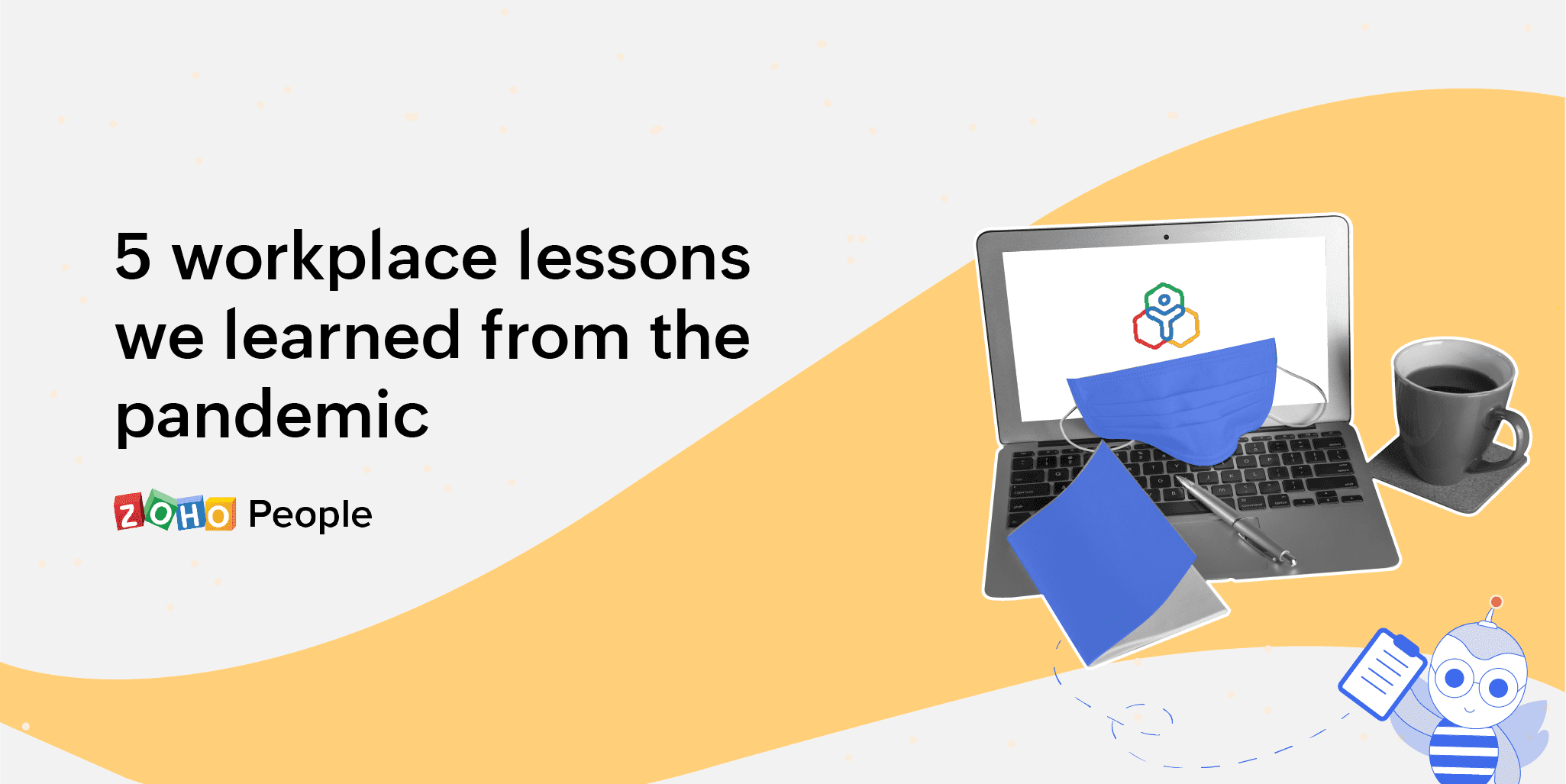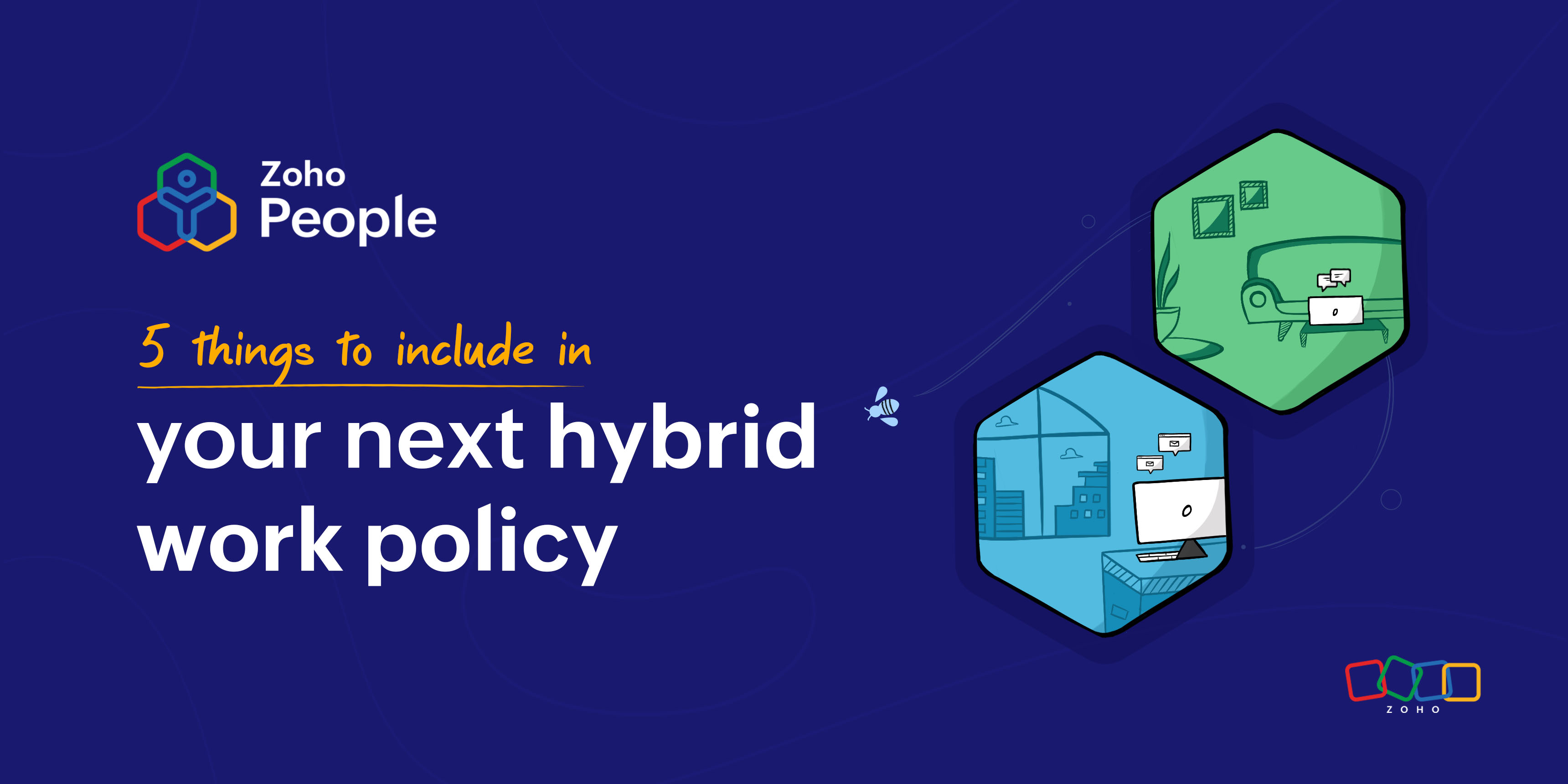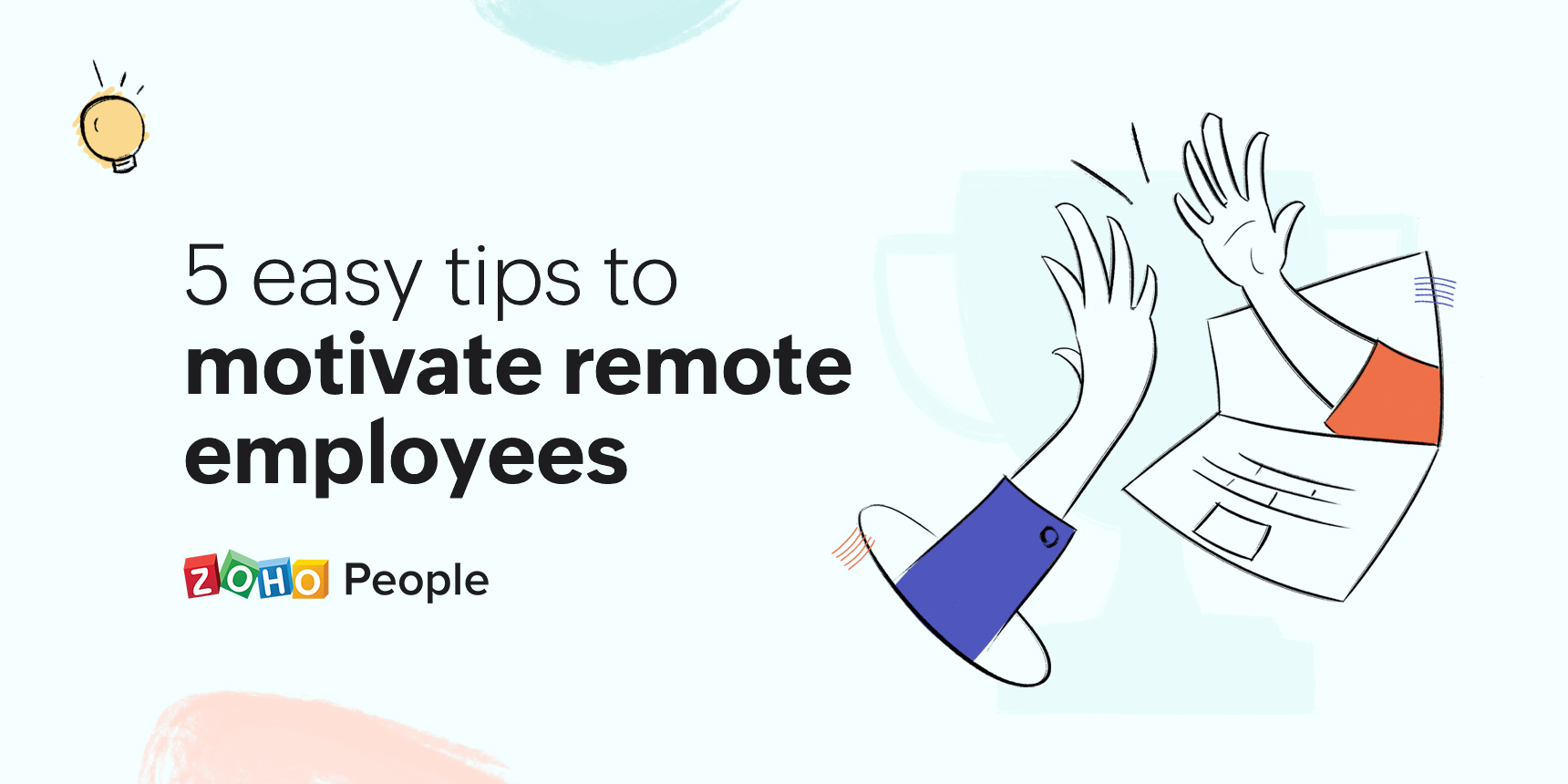- HOME
- COVID-19 Resources
- 5 workplace lessons we learned from the COVID-19 pandemic
5 workplace lessons we learned from the COVID-19 pandemic
- Last Updated : November 18, 2025
- 6.3K Views
- 4 Min Read

From day one, the COVID-19 pandemic transformed almost all facets of work fast-tracking policies from several years to two or three days. For instance, remote work used to be a prestigious perk that only top companies offered to their trustworthy and experienced employees. Most organizations thought employees wouldn't be productive without in-person interactions and constant monitoring. Similarly, some organizations were under the misconception that offering flexible working schedules would reduce the amount of work employees would accomplish.
However, the COVID-19 pandemic has proved all the misconceptions wrong.
The pandemic showed business leaders that employees don't have to be in the same room as their managers to work effectively—elevating the importance of trust, transparency, empathy, compassion, employee wellness, emotional intelligence, and morale. at the workplace. Some of the practices we adopted during the pandemic should be carried over to the post-pandemic world to establish a progressive work environment that puts people before profits. Here are five workplace lessons from the COVID-19 pandemic that should guide us all into the post-pandemic world too:
Employee wellness matters as much as employee productivity
The pandemic has elevated wellness at the workplace for both employees and employers. When the COVID-19 pandemic started, every aspect of our daily lives changed completely. From adopting remote work and staying indoors to helping kids study and navigating new concerns over safety, our collective new normal hit everybody hard. That's why more organizations shifted their focus towards employee wellness to help them combat the stress caused by the pandemic while also working effectively. From organizing yoga, meditation, and fitness sessions to facilitating mental health counseling sessions, organizations tried it all. These wellness programs helped employees stay sane and be productive.
Continuing employee wellness initiatives even after the pandemic would be a win-win for both employees and employers. Wellness programs foster a positive work environment. When employees are healthy emotionally, physically, and mentally it can significantly reduce employee absenteeism caused by sickness and burnout. Well-being is one of the most important factors that enable employees to be productive. In fact, according to a report by the U.S. Chamber of Commerce, investing in wellness programs can bring an ROI between $1.50 and $3 per dollar.
Compassion and empathy should be a core part of employee management
Employees no longer want to work for organizations that make them work in exchange for burnout. During the pandemic, organizations took conscious steps to listen to what employees were going through and do everything in their power to help. For instance, some employees were struggling to keep their kids engaged at home while they worked so some organizations organized camps and other activities to keep their employees' kids busy while they focused on work.
Other organizations organized virtual activities with their team because their employees felt isolated due to remote work. Being supportive of your employees' needs will only improve their morale and motivate them to work better for your organization. Kind and compassionate communication makes an employee more involved as part of their team.
Tech tools are required to empower employees to work from anywhere
The pandemic has helped employers realize the importance of using cloud-based technology tools. Clinging on to legacy systems that don't scale up according to your needs, thereby making work harder can impede your organization's growth. Unfortunately, most of the organizations learned this the hard way during the onset of the pandemic and had to implement tech tools overnight. Only with proper technology have employees been able to work effectively across different locations.
Even after the pandemic, it's good to continue to use and adopt cloud-based tech tools that are available to everyone. Tech tools should automate manual tasks, reduce paperwork, help employees collaborate with their peers, and make them productive while providing a personalized experience. Having these kinds of technology tools improves employee trust in your organization and makes them satisfied with their work.
Flexible work schedules are no longer nice to have, but essential
Before the pandemic, only a few organizations operated outside the traditional 9-5 schedules to allow employees to work whenever, as long as they completed their tasks. After the pandemic, with the adoption of remote work, most organizations allowed employees to work at a time that was most convenient for them to strike a better balance between their personal and professional commitments. Supporting flexible practices post-pandemic can show your interest in improving your employee's living conditions while also appealing to the younger generation of employees looking for increased workplace flexibility.
Building a resilient workforce is essential
When the pandemic first struck, organizations had very little time to adjust their operations and prepare their employees. The sudden shift took a great toll on employee's well-being, leaving them stressed and anxious. That's why it's essential to foster resilience in your employees and keep them prepared to face similar challenges and disruptions that may occur in the future. Check out our blog to know everything that is required to build business resilience in 2021.
Wrapping up
The COVID-19 pandemic has fundamentally changed every aspect of how employees work. It has shown organizations the importance of putting employees and their interests before anything. Organizations have to prioritize employee's wellness, be compassionate and empathetic in their management, and provide employees with the support they require to thrive in the post-pandemic world. We hope this blog gave you an idea on some important workplace lessons taught by the pandemic!
 Tarika
TarikaContent Specialist at Zoho People


